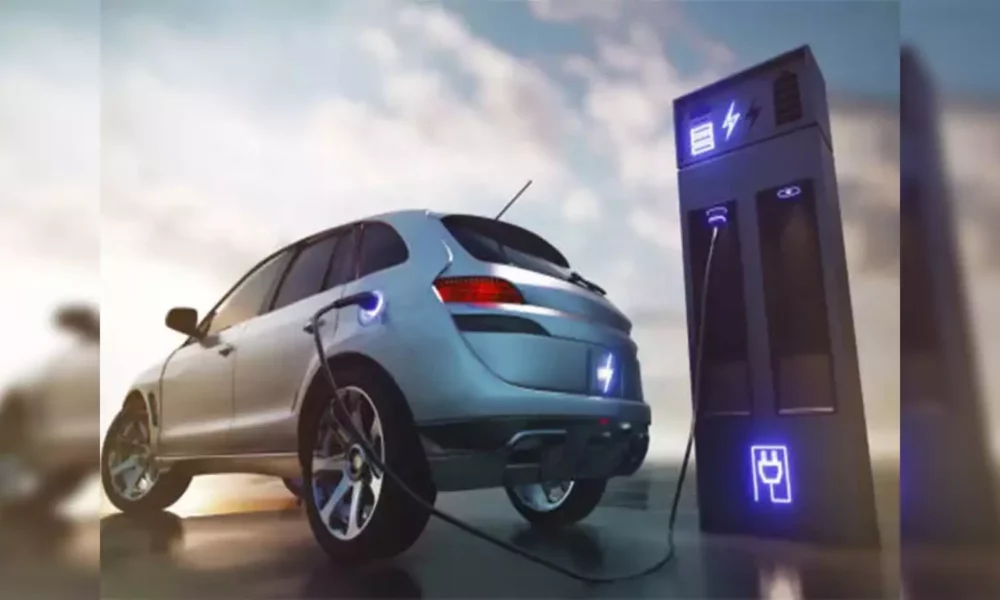How Electric Vehicles (EVs) Are Changing the Indian Automobile Industry

Electric vehicles (EVs) are no longer just a futuristic idea—they are quickly becoming a key part of India’s transportation system. This blog takes a closer look at how EVs are changing the automobile industry in India, from reducing our reliance on fossil fuels to creating new job opportunities and improving air quality.
You’ll learn about the impact of government initiatives, the challenges we face in building the right infrastructure, and the exciting possibilities that lie ahead for sustainable mobility. By the end, you’ll have a clear understanding of why this shift to EVs is a game-changer for India’s future.
The Current State of the Indian Automobile Industry
India’s automobile industry is one of the largest in the world, valued at around $222 billion. However, it heavily relies on internal combustion engine (ICE) vehicles, which contribute significantly to air pollution and greenhouse gas emissions. The transition to electric vehicles is crucial for reducing these environmental impacts.
Growth of EV Sales
In recent years, EV sales have surged. For instance, India sold over 1 lakh electric vehicles in just one fiscal year, showing a dramatic increase compared to previous years. This growth is primarily driven by two-wheelers, which make up more than 80% of all vehicles in India. I find it impressive how quickly consumers are adopting electric mobility in India, with models from brands like Tata Motors and Ola Electric leading the charge.
Government Initiatives
The Indian government has launched several initiatives to promote EV adoption. The Faster Adoption and Manufacturing of Hybrid and Electric Vehicles (FAME) scheme aims to provide financial incentives for both manufacturers and consumers. Additionally, investments in charging infrastructure are crucial for supporting this transition. Policies like the Delhi EV Policy play a significant role in encouraging cities to enhance their EV infrastructure, making it easier for everyone to transition.
Economic Impact of EV Adoption
The shift towards electric vehicles has far-reaching economic implications for India:
Reduction in Oil Imports
A significant benefit of adopting EVs is the reduction in oil imports. By transitioning to a scenario where 30% of vehicles are electric by 2030, India could save approximately INR 1.07 lakh crore (about $14 billion) on crude oil imports annually. This reduction not only strengthens India’s foreign exchange reserves but also enhances energy security. I can’t help but think about how important this is for our economy!
Job Creation
The EV sector is projected to create around 10 million jobs by 2030 across various domains such as manufacturing, battery technology, and charging infrastructure. This job creation will play a vital role in boosting the economy while contributing to environmental sustainability. It’s exciting to think about the new career opportunities in the EV market that will emerge as more companies like MG Motors and Ather Energy enter the field.
Investment Opportunities
The EV market is expected to reach INR 2.12 lakh crore ($27.8 billion) by 2030. This presents a lucrative opportunity for investors, manufacturers, and startups focusing on electric mobility solutions. With the rise of renewable energy integration with EVs, there’s a lot of growth potential.
Environmental Benefits
Transitioning to electric vehicles offers substantial environmental advantages:
Reduced Emissions
Electric vehicles produce significantly lower emissions compared to ICE vehicles. Studies indicate that CO2 emissions from electric cars can be 8% to 24% lower than those from traditional cars by 2030, depending on the energy mix used for electricity generation. This is a crucial step in reducing our carbon footprint.
Improved Air Quality
With reduced particulate matter and nitrogen oxide emissions, cities can expect improved air quality. This will have direct benefits for public health, reducing respiratory diseases associated with pollution. I’ve noticed how cities with more EVs tend to have cleaner air, making them more pleasant places to live.
Sustainable Transportation
The shift towards EVs aligns with global efforts to combat climate change. India’s commitment to international forums like COP26 emphasizes the need for sustainable transportation solutions. It’s reassuring to know that our country is taking steps to address climate change through policies supporting green energy vehicles.
Challenges Facing the EV Transition
While the benefits of EV adoption are clear, several challenges remain:
Infrastructure Development
A robust charging infrastructure is essential for widespread EV adoption. Currently, many regions lack adequate charging facilities, which can deter potential buyers. To make EVs more accessible, we must advocate for investments in Bharat Charging Stations and other charging networks.
Cost Barriers
Although operating costs for EVs are lower than those for ICE vehicles, the initial purchase price can be a barrier for many consumers. Government subsidies and incentives are crucial to making EVs more affordable. I believe that with time, as battery technology improves, we will see a decrease in these costs.
Indigenization of Manufacturing
To maximize economic benefits, India must focus on indigenizing battery production and powertrain components. This will reduce dependency on imports and enhance local job creation. By investing in local manufacturing, we can strengthen our economy and create more jobs.
The Future of Electric Vehicles in India
Looking ahead, the future of electric vehicles in India appears promising:
Policy Support
Continued government support through policies like tax incentives and subsidies will be vital in driving EV adoption. The National Electric Mobility Mission Plan aims to accelerate this transition significantly, providing a roadmap for future growth.
Technological Advancements
Innovations in battery technology will improve range and reduce costs over time. As technology advances, consumers will find EVs more appealing and accessible. I’m excited about the upcoming advancements and how they will shape the EV market.
Public Awareness
Educating consumers about the benefits of electric vehicles can help overcome skepticism and increase demand. Awareness campaigns highlighting cost savings and environmental benefits will play a crucial role. I think that as more people learn about the advantages of EVs, the shift will accelerate.
Conclusion
In conclusion, electric vehicles are poised to transform the Indian automobile industry significantly. With strong government support, technological advancements, and increasing public awareness, India can lead the way toward a sustainable future in transportation. As we embrace this change, we not only improve our economy but also take significant steps toward protecting our environment for future generations.





